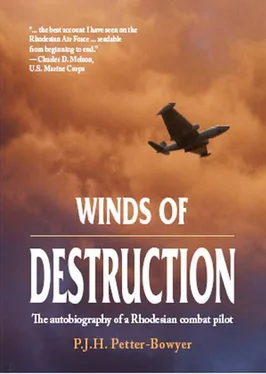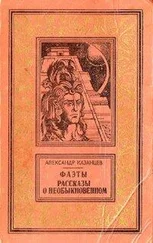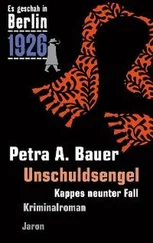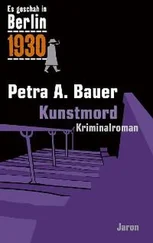Peter Petter-Bowyer - Winds of Destruction
Здесь есть возможность читать онлайн «Peter Petter-Bowyer - Winds of Destruction» весь текст электронной книги совершенно бесплатно (целиком полную версию без сокращений). В некоторых случаях можно слушать аудио, скачать через торрент в формате fb2 и присутствует краткое содержание. Город: Solihull, Pinetown, Год выпуска: 2012, ISBN: 2012, Издательство: Helion & Company, 30° South Publishers, Жанр: Биографии и Мемуары, на английском языке. Описание произведения, (предисловие) а так же отзывы посетителей доступны на портале библиотеки ЛибКат.
- Название:Winds of Destruction
- Автор:
- Издательство:Helion & Company, 30° South Publishers
- Жанр:
- Год:2012
- Город:Solihull, Pinetown
- ISBN:9781908916754
- Рейтинг книги:5 / 5. Голосов: 1
-
Избранное:Добавить в избранное
- Отзывы:
-
Ваша оценка:
- 100
- 1
- 2
- 3
- 4
- 5
Winds of Destruction: краткое содержание, описание и аннотация
Предлагаем к чтению аннотацию, описание, краткое содержание или предисловие (зависит от того, что написал сам автор книги «Winds of Destruction»). Если вы не нашли необходимую информацию о книге — напишите в комментариях, мы постараемся отыскать её.
Winds of Destruction — читать онлайн бесплатно полную книгу (весь текст) целиком
Ниже представлен текст книги, разбитый по страницам. Система сохранения места последней прочитанной страницы, позволяет с удобством читать онлайн бесплатно книгу «Winds of Destruction», без необходимости каждый раз заново искать на чём Вы остановились. Поставьте закладку, и сможете в любой момент перейти на страницу, на которой закончили чтение.
Интервал:
Закладка:
Possibly because he believed the information being fed to him and wished to uphold the morale of his forces, General Walls called a meeting of Army and Air Force officers at the New Sarum Sports Club. As I recall, no member of COMOPS staff was included.
Since I did not attend the meeting addressed by General Walls, I cannot say exactly what was said. I do know, however, that he gave the assembled officers his personal guarantee that he would not allow Mugabe to come to power. I also know that the general’s speech left most officers with a clear understanding that military action would be taken against ZANU in the ‘unlikely event’ that it gained a majority at the polls. This notion, however, was very much at odds with what General Walls had told his own staff. In COMOPS we had been informed, categorically, that no unconstitutional action would be considered. General Walls said, “There is no question of Rhodesians indulging in a military coup.”
The ‘whites only’ election was held on 14 February and went off smoothly with Ian Smith’s RF party gaining all twenty white seats, as expected. On 27, 28 and 29 February the ‘common roll’ voters went to the polling stations where illprepared London Bobbies and other Commonwealth observers watched the long lines of voters ‘to ensure that no intimidation was taking place’. They had no idea that ZANLA had told harassed tribesmen that the reason for three days of voting was simple. Day One was for all people voting for Mugabe; Day Two was for Muzorewa and Day Three for Nkomo. Anyone not voting on Day One would be dealt with very severely.
The observers, most on African soil for the first time, were blissfully unaware of subtle intimidation going on right under their noses or of blatant intimidation against people approaching from beyond their sight; this was at its worst during Days Two and Three. But Rhodesians who watched could clearly see ZANLA’s underhanded methods. Intimidation was rife and people were told that voting for Mugabe had been extended to include all three days. “The spirits and special spies will reveal any individual who did not place his mark in favour of ZANU.”
The news coming in from all around the country seemed to undo any false hopes amongst members of the NATJOC. High levels of frustration were evident with much toing and froing between COMOPS and Government House. General Walls sent an urgent signal to Margaret Thatcher in an attempt to stop the rot. He received no reply until elections were over, and there was not the faintest hint that any action would be taken by Britain against ZANU.
Whilst this was going on, I continued to spend most of my time with ZIPRA and ZANLA. ZIPRA knew what was going on in the field and were thoroughly depressed. ZANLA knew what was going on in the field and were elated. Throughout the day of 3 March, results of the elections kept coming through but no clear-cut trend emerged until late that night. Things looked bad when I eventually retired to bed.
I recall sitting at my desk the next morning when a sensation of overwhelming panic struck me just as a cup of tea was placed before me. Even though I thought I was fully prepared, final confirmation over the radio of Mugabe’s whopping fifty-seven seats victory floored me. It must have been really awful for those who had been so confident that Muzorewa would get more than eleven seats because he only gained three! During the afternoon the Ceasefire Committee held its closing meeting and a final photograph was taken on the steps outside the conference room.
In a stunned state I wandered up to Air HQ to be near friends and to gaze out of the window of the office I once used for my projects work. Salisbury’s streets and avenues were filled with celebrating blacks. Open lorries were parading about, filled with excited people, flapping their arms and uttering the sound of a cockerel crowing at dawn—ZANU’s election symbol.
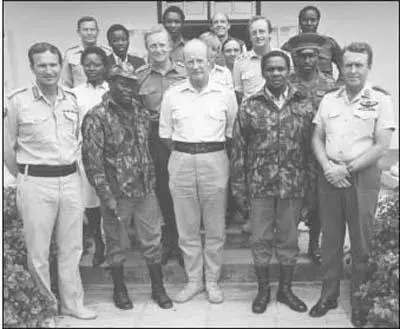
Because I was a member of the Ceasefire Committee with continuing liaison duties between COMOPS, ZIPRA and ZANLA, it is not surprising that I was totally unaware that SAS and RLI were on immediate standby to take out ZANLA’s hierarchy in the event of a Mugabe victory. However, high hopes following detailed planning and rehearsed tasks, which included the employment of tanks and other heavy equipment, turned out to be a damp squib. The secret codeword to launch this top-secret operation was never given. Incensed by General Walls’s assurance that Mugabe would not be allowed to come to power, the disgusted SAS named the situation ‘Rhodesia’s Walls Street Crash’.
At all of Salisbury’s major road intersections vehicle-borne troops waited for trouble whilst trying to put on a brave face for passing civilians—but nothing happened. Overhead, helicopters orbited, watching for any breakout of looting—but this did not occur. An air of depression and uncertainty hung over all who opposed ZANU as well as many who had been coerced through fear into voting for Mugabe’ party. Many people went home, shops closed and almost all work had ceased by midday.
Radio and television stations ran some regular programmes, but for the most part Mugabe’s victory held prominence. Repeatedly listeners and viewers were reminded that Robert Mugabe would address the nation at 8 pm.
When he came on air, Mugabe projected himself as a decent chap, preaching reconciliation and the need to put the past behind us. He was at pains to give hope and asked every citizen of the new Zimbabwe to move forward with faith and determination to build on its vibrant economy in a non-racial society. Whilst he was speaking, I sensed considerable relief. However, when he had finished, I thought things through.
When released from prison in 1974 to participate in the Zambian-South African sponsored talks in Lusaka, Mugabe had broken solemn undertakings by escaping into Mozambique. He had failed to meet any promise made to Nkomo. Yet now, having blatantly broken every agreement with Britain and three other parties at Lancaster House, he was projecting himself as an honest and fair-minded man. I could not accept this. The Mugabe leopard was not about to change his spots; he was a Marxist through and through and could be counted on to change direction whenever it suited him.
Within an hour of the speech my mind was made up. I had to resign from the Air Force and decide if I should stay in Zimbabwe or sell up and move my family away from a Marxist government that would undoubtedly become a oneparty dictatorship, just like the rest of black Africa. Personal enrichment for Africa’s leading politicians had deprived their peoples of pre-independence wealth and their pathetic management had destroyed previously strong economic foundations. Zimbabwe would be no different!

Joint High Command HQ

SETTING UP THE JOINT HIGH Command Headquarters commenced on 6 March. Whilst COMOPS HQ was being wrapped up I, together with a handful of officers, commenced furnishing new offices in a newly built wing at Army HQ. Unfortunately Brigadier Peter Rich had retired and Brian Robinson was no longer with COMOPS so those of us remaining no longer enjoyed any spirit of fun and laughter. Brigadier Leon Jacobs replaced Peter Rich but I hardly ever saw him.
Читать дальшеИнтервал:
Закладка:
Похожие книги на «Winds of Destruction»
Представляем Вашему вниманию похожие книги на «Winds of Destruction» списком для выбора. Мы отобрали схожую по названию и смыслу литературу в надежде предоставить читателям больше вариантов отыскать новые, интересные, ещё непрочитанные произведения.
Обсуждение, отзывы о книге «Winds of Destruction» и просто собственные мнения читателей. Оставьте ваши комментарии, напишите, что Вы думаете о произведении, его смысле или главных героях. Укажите что конкретно понравилось, а что нет, и почему Вы так считаете.
